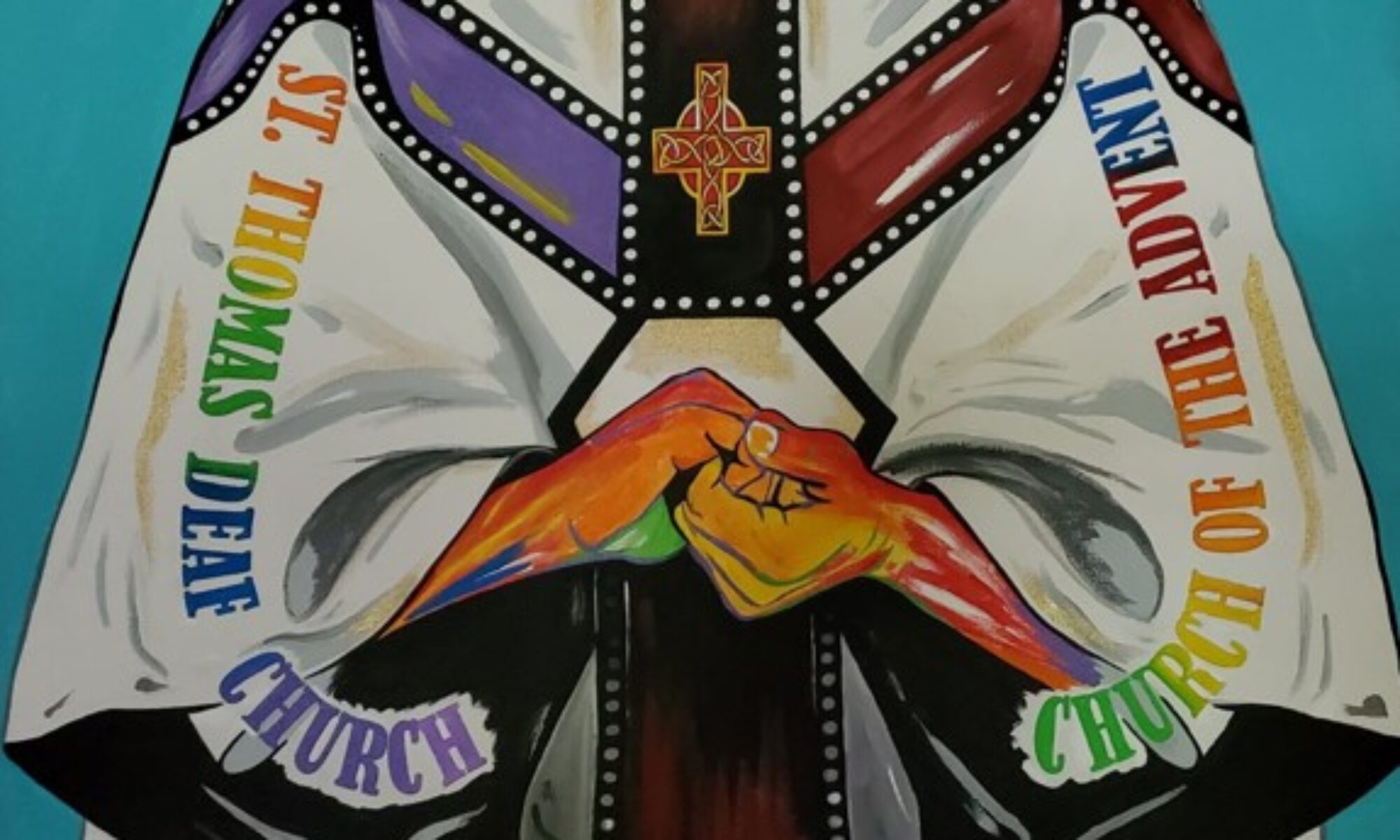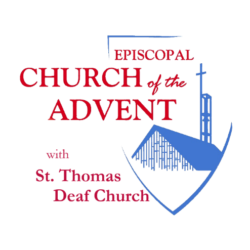The Trinity
Worship is the center of the life of Advent. In worship, our voices are blended into the one voice of the Body of Christ. We offer to God the very substance of our lives under the signs of bread and wine, and God blesses our offering and returns it to us as the Body and Blood of Christ. Worship transforms our lives and, through us, the world.
This pattern of self-giving and delight in receiving mirrors the life of the Trinity. The First person of the Trinity pours out the divine self in love in begetting the Son, and Son, incarnate as the Christ, returns the divine self to the first Person. The Spirit is the delight of the gift, and vivifies the Church as the Body of Christ.
The creation is the gift the persons of the Trinity give to one another for the sheer delight of giving. We participate in the life of the Trinity when we delight in returning our gifts to God in the Eucharist.
The Bible
At Advent, the Bible is the basis for our worship. We read passages from Scripture at every worship service, and we seek to find the meaning Scripture holds for us today.
The Bible records the attempts of communities to understand God’s presence and activity in their lives. Although these attempts are culturally and historically limited, because the Bible runs the gamut of experience with God, it remains timeless—the joys, sorrows, and struggles to encounter God experienced by those who wrote the Bible can inform our own desire to find the meaning and purpose God has for our lives and communities.
We believe God endowed humanity with reason and intellect and God intends us to use our faculties to explore the world. When our investigations reveal information that was not available to the communities that authored the Bible or handed on by the traditions of the Church, we are willing to set our reason alongside these other ways of knowing God. This means that Episcopalians often engage in lively discussions about issues that concern us. We must weigh the witness of Scripture and tradition and have good reason for diverging from them, but we encourage people to think for themselves and to bring the light of their own experience to bear on the issues that confront the Church and world today.

